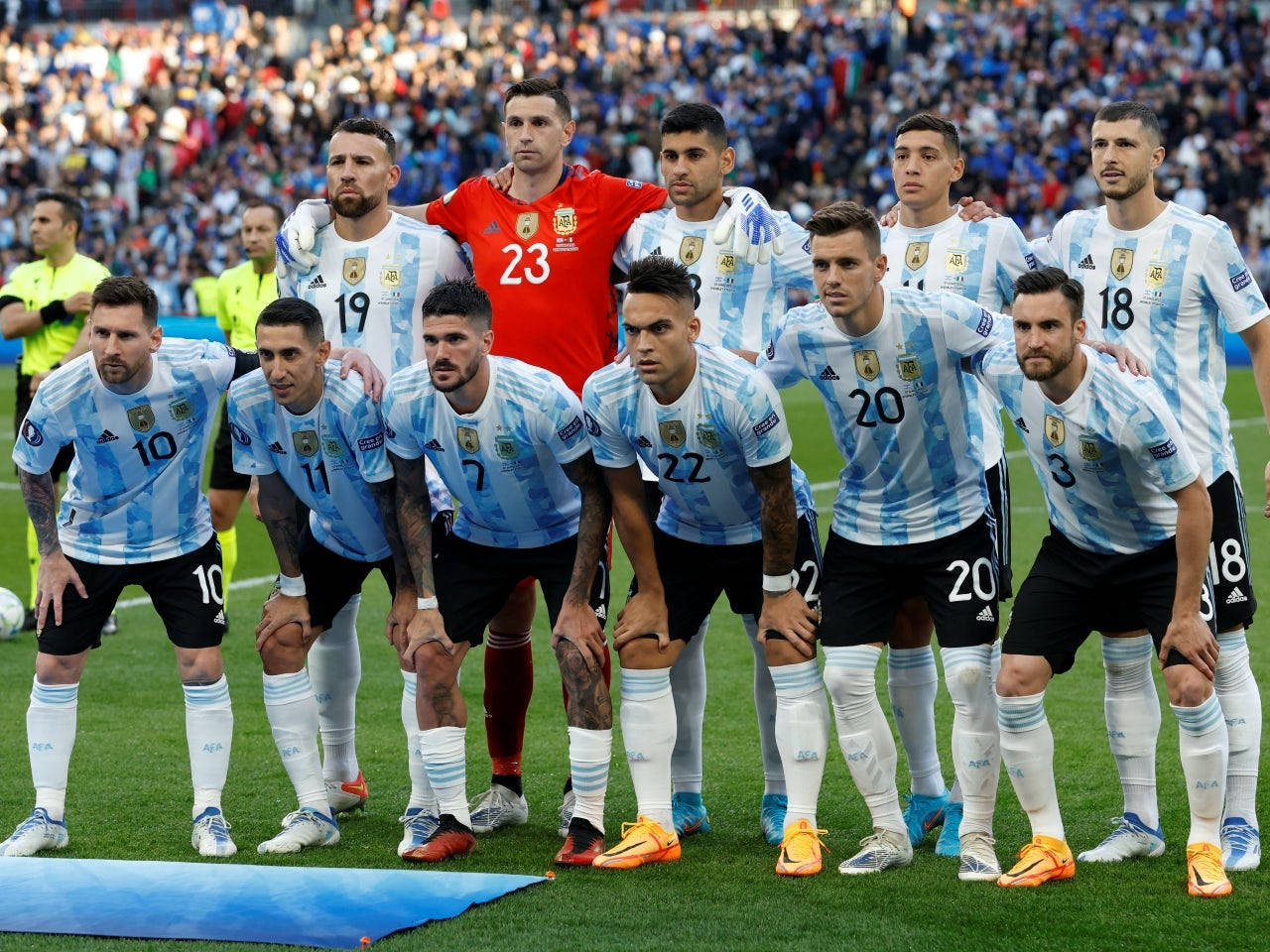“The Future of Football in Argentina: Navigating Tradition, Innovation, and Global Challenges
Related Articles The Future of Football in Argentina: Navigating Tradition, Innovation, and Global Challenges
The Future of Football in Argentina: Navigating Tradition, Innovation, and Global Challenges

Argentina, a nation synonymous with footballing passion and brilliance, stands at a fascinating crossroads. The echoes of Diego Maradona’s genius and Lionel Messi’s era still reverberate, but the future of Argentine football demands more than just nostalgia. It requires a strategic blend of honoring its rich heritage, embracing innovation, and addressing the complex challenges that lie ahead.
A Legacy of Glory and a Present of Transition
Argentine football’s history is studded with iconic moments: two World Cup triumphs (1978, 1986), numerous Copa America victories, and a seemingly endless stream of world-class players. From Alfredo Di Stéfano to Mario Kempes, Gabriel Batistuta to Juan Román Riquelme, the nation has consistently produced talents that have captivated the global stage.
However, the present landscape is one of transition. While Argentina secured the 2022 World Cup, the domestic league, the Liga Profesional, faces numerous hurdles. Financial instability, infrastructure limitations, and a talent drain to European clubs are persistent concerns. The national team’s success provides a much-needed boost, but sustainable growth requires a holistic approach that addresses issues at the grassroots level and throughout the professional structure.
Key Pillars for a Bright Future
To secure a prosperous future, Argentine football must focus on several key areas:
-
Youth Development and Talent Identification:
- Investing in Grassroots Programs: The foundation of any successful footballing nation lies in its youth academies. Argentina needs to strengthen its grassroots programs, ensuring that young players from all socioeconomic backgrounds have access to quality coaching and facilities.
- Modernizing Training Methodologies: Embracing modern training techniques, sports science, and data analytics is crucial. This includes incorporating individualized training plans, focusing on injury prevention, and utilizing technology to track player performance.
- Expanding Scouting Networks: Establishing comprehensive scouting networks across the country, particularly in underserved regions, can help identify hidden talents and provide them with opportunities to develop.
- Promoting Futsal and Beach Soccer: These variations of football can enhance players’ technical skills, agility, and tactical awareness. Integrating them into youth development programs can provide a valuable complement to traditional football training.

-
Strengthening the Domestic League:
- Financial Stability: Addressing the financial woes of Argentine clubs is paramount. This involves implementing stricter financial regulations, promoting transparency, and attracting investment from both domestic and international sources.
- Infrastructure Improvement: Many Argentine stadiums are outdated and lack modern amenities. Investing in infrastructure upgrades, including improved pitches, training facilities, and fan accommodations, is essential for enhancing the overall matchday experience.
- Competitive Balance: The Liga Profesional needs to foster greater competitive balance. This can be achieved through revenue sharing mechanisms, salary caps, and other measures that prevent a few wealthy clubs from dominating the league.
- Promoting Young Talent: Encouraging clubs to give young players opportunities in the first team is vital for developing the next generation of stars. This can be facilitated through quota systems or incentives for playing youth players.
-
Embracing Innovation and Technology:
- Data Analytics: Argentine clubs need to fully embrace data analytics to gain a competitive edge. This includes using data to analyze player performance, identify tactical trends, and make informed decisions about player recruitment and training.
- Sports Science: Integrating sports science into training regimens can help optimize player performance, reduce injuries, and improve recovery times. This involves utilizing advanced monitoring technologies, personalized nutrition plans, and specialized rehabilitation programs.
- E-sports and Digital Engagement: Engaging with fans through digital platforms and e-sports can create new revenue streams and expand the reach of Argentine football. This includes developing online content, hosting virtual events, and partnering with e-sports organizations.
- Artificial Intelligence (AI): AI can be used to improve various aspects of football, including scouting, training, and match analysis. AI-powered scouting tools can help identify promising young players, while AI-driven training programs can personalize player development.
-
Governance and Leadership:
- Transparency and Accountability: The Argentine Football Association (AFA) needs to operate with greater transparency and accountability. This includes implementing stricter ethical guidelines, promoting good governance practices, and ensuring that decisions are made in the best interests of the game.
- Strategic Planning: Developing a long-term strategic plan for Argentine football is essential. This plan should outline clear goals and objectives, identify key priorities, and allocate resources effectively.
- Collaboration and Partnerships: Fostering collaboration between the AFA, clubs, players, and other stakeholders is crucial for achieving common goals. This includes establishing effective communication channels, promoting dialogue, and working together to address challenges.
- International Relations: Strengthening relationships with FIFA, CONMEBOL, and other footballing organizations can help Argentina secure funding, access expertise, and participate in international initiatives.
-
Social Responsibility and Community Engagement:
- Promoting Social Inclusion: Football has the power to unite people from all backgrounds. Argentine football should actively promote social inclusion by supporting initiatives that address issues such as poverty, inequality, and discrimination.
- Environmental Sustainability: Argentine clubs should adopt sustainable practices to reduce their environmental impact. This includes implementing energy-efficient measures, promoting recycling, and supporting environmental conservation efforts.
- Education and Health: Football can be used as a tool to promote education and health. Argentine clubs should partner with schools and community organizations to provide educational programs, health screenings, and other services.
- Fan Engagement: Creating a positive and inclusive atmosphere at matches is essential for attracting fans and promoting the growth of the game. This includes implementing measures to combat hooliganism, ensuring fan safety, and providing a welcoming environment for families and children.
Challenges and Opportunities
Argentine football faces several significant challenges:
- Economic Instability: Argentina’s recurring economic crises have a direct impact on football clubs, making it difficult to attract and retain top players, invest in infrastructure, and maintain financial stability.
- Violence and Hooliganism: Barras bravas, organized groups of violent fans, pose a serious threat to the safety and security of matches. Combating hooliganism requires a multi-faceted approach involving law enforcement, clubs, and fan organizations.
- Talent Drain: The lure of European football continues to attract Argentina’s best young players, depriving the domestic league of its top talent and hindering its ability to compete with other leagues.
- Corruption and Mismanagement: Corruption and mismanagement have plagued Argentine football for decades, undermining its credibility and hindering its development.
However, these challenges also present opportunities:
- World Cup Victory: The national team’s recent World Cup triumph has injected a renewed sense of optimism and pride into Argentine football. This momentum can be leveraged to attract investment, promote the game, and inspire the next generation of players.
- Global Recognition: Argentine football enjoys a strong global reputation, thanks to its rich history, iconic players, and passionate fans. This recognition can be used to attract sponsors, media partners, and international collaborations.
- Technological Advancements: The rapid pace of technological innovation offers new opportunities to improve all aspects of Argentine football, from youth development to match analysis to fan engagement.
- Social Impact: Football has the power to make a positive impact on society. Argentine football can use its platform to promote social inclusion, environmental sustainability, and other important causes.
The Road Ahead
The future of Argentine football hinges on its ability to address its challenges, capitalize on its opportunities, and embrace a forward-thinking approach. By investing in youth development, strengthening the domestic league, embracing innovation, promoting good governance, and engaging with the community, Argentina can ensure that its footballing legacy continues to thrive for generations to come.
The passion and talent are undoubtedly present. What is needed now is a strategic vision, strong leadership, and a collective commitment to building a sustainable and successful future for Argentine football. The world awaits the next chapter in this captivating story.

